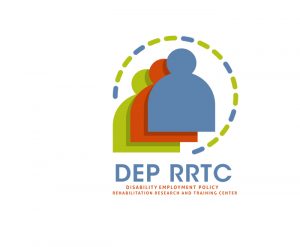Partners
Who We Are
The Disability Employment Policy Rehabilitation Research and Training Center (DEP RRTC) is funded by the National Institute on Disability, Independent Living, and Rehabilitation Research (NIDILRR, grant #90RTEM0016) in the U.S. Department for Health and Human Services. Burton Blatt Institute at Syracuse University, Harvard Medical School, Rutgers University, Cornell University, and Mathematica are partnering to design and implement a series of studies that produce new data and evidence on disability employment policy to increase employment rates and outcomes for persons with disabilities.
What We Do
At its core, the DEP RRTC’s purpose is to develop evidence-based research and tools that ensure people with disabilities who are seeking work, employed, underemployed, or unemployed are able maximize their “equality of opportunity, full inclusion and integration in society, employment, independent living, and economic and social self-sufficiency” (Rehab Act Section 2(a)(6)(B)).
The DEP RRTC examines federal, regional, state, and private industry policies and programs to identify critical outcomes and impacts that improve employment entry options, better wage and income levels, worker retention and job quality and benefits, career growth and paths to economic stability, employment reengagement in the event of job loss and reduced dependence on Social Security disability benefits.
Our Objectives
The DEP RRTC will:
(1) identify new evidence-based employment-related policy development for policy makers;
(2) increase knowledge of evidence-based practices to enhance worker retention and quality of work experience for businesses and human resource professionals;
(3) increase knowledge of evidence-based strategies to improve employment, job retention, and employment reengagement for employment service providers assisting persons with disabilities;
(4) identify new strategies to support job seekers with disabilities for vocational rehabilitation (VR) and workforce development professionals;
(5) enhance access to new knowledge and exploration of alternative paths to employment and career advancement for individuals with disabilities;
(6) produce new data and evidence to support existing and next-generation research for researchers and students; and
(7) establish a disability policy framework to advance employment and economic self-sufficiency for working-age adults with disabilities.
